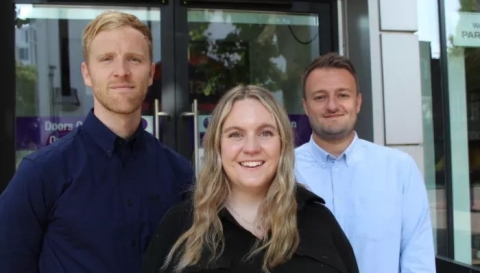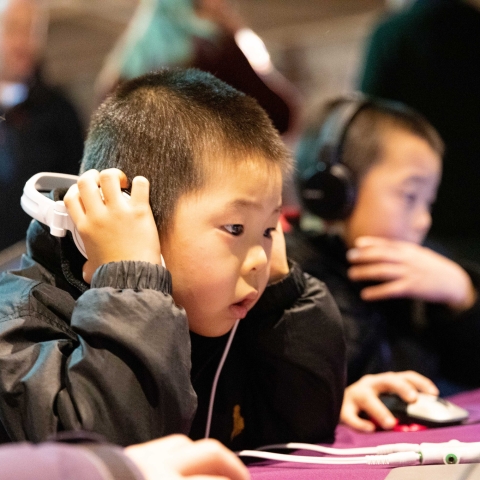

Finding a job
Working with children and young people
Graduates wanting to work with children and young people enter a variety of sectors with a range of employers. On this page you will find out more about employers to consider and where to look for suitable opportunities.
Employers to consider
- Local authorities
- Charities
- Schools and colleges
- Nurseries and pre-schools
- NHS and health authorities

Online jobs boards
Some key job boards that advertise opportunities in this sector include:
Area-specific resources
Find specific resources for each area of work with children and young people
- Day Nurseries – provides information about different nurseries across the UK and has a job search function available.
- Find A Job - Early Years - early years jobs advertised on the government find a job site
- YMCA – YMCAs across England and Wales employ staff who contribute to improving prospects for vulnerable young people and wider communities. The site outlines current job opportunities.
- National Association for the Care and Resettlement of Offenders – NACRO works with young people and young adults across housing, education, health, justice, support and advice. The site outlines current opportunities with NACRO and promotes roles with other organisations in the sector.
- Youth Custody Service – A fast-track programme to become a Youth Justice Worker Specialist, delivered by the HM Prison & Probation Service.
- jobsgopublic – allows you to find public sector jobs in local government, charity, education and housing, including specific youth work vacancies.
Jobs with the NHS are generally advertised through NHS Jobs and NHS Trust websites, whereas jobs in independent healthcare are normally advertised on company websites or via specialist recruitment vacancies.
If you are interested in management positions within the NHS, then the NHS offers a Graduate Management Training Scheme.
Other opportunities can be found through the websites below:
- Community Care Jobs –an online source of social care jobs, including roles with children and young people, within youth justice, linked to mental health or to health more broadly.
- Step Up to Social Work – the information provided through the GOV.UK website explains what qualifications and experience you need to apply for this intensive full-time training programme, which covers everything trainee social workers need to know in 14 months. The scheme only accepts applications every two years, and applications for the 2026 programme are currently closed.
- Frontline – is a charity offering a programme to high potential graduates and career changers to become front line children's social workers as part of their two-year leadership programme. Visit the site for further information.
- MSc Social Work - there is a 2 year full time postgraduate course at the University of Portsmouth that will equip graduates with the skills and experience needed to become a professional social worker.
- Graduate Entry Training Scheme (GETS) with Hampshire County Council – offers newly qualified social workers the opportunity to accelerate their learning and experience in a local authority. Their GETS scheme is unique to Hampshire County Council and provides an insight into the structure and practice of the service provider. Support is through the Assessed and Supported Year in Employment, ensuring employees develop a foundation in the necessary skills and confidence for their role.
Vacancies within schools are likely to be advertised through the institutions themselves or through the local education authority (LEA). Alternatively, you may find jobs advertised through:
If you are looking to get into higher or further education, then the educational institutions commonly use their own websites to advertise vacancies. You can also look at the following jobsites for roles in universities or colleges below:
There is further information about how to develop your career in teaching through our specific career guide on teaching.
Recruitment agencies
Recruitment consultants work with individuals to help them find suitable work to match their skills. Agency Central is the UK's leading recruitment agency directory. An advanced search and filter system finds the agencies which match your needs.

Are you looking for a role in Hampshire? Our Graduate Recruitment Consultancy can help!
If you're in the final year of your degree, you can register for support from our Graduate Recruitment Consultancy. They work with over 3,000 employers in the local area to place our students into fantastic graduate careers.
Speculative applications
Speculative applications involve sending a CV and cover letter to an employer to ask if they have any vacancies, even if the company is not currently advertising for a role. They're a great way to access "hidden jobs" that go unadvertised.
Submitting a speculative application shows your interest in a specific company and your willingness to go above and beyond to develop your skills and understanding of the industry.
Finding a graduate job
Explore our Graduate Job Guide for more expert advice, practical tips and everything you need to know about securing that graduate role.

Explore the Working with Children and Young People career guide
Working with children and young people
Your guide to a successful career working with children and young people.

Getting started in your career with children and young people
Understand your options and take the first steps to beginning your career working with children and young people.

Gaining experience working with children and young people
Find out how to build your experience working with children and young people while you study.

Enable University alerts
Turn on notifications for critical updates like closures, safety alerts, and urgent service disruptions.









